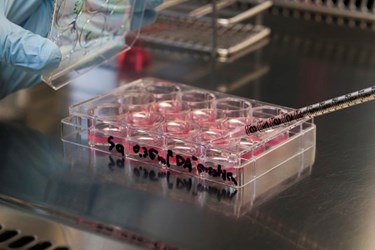Lab-Grown Human GI Cells Hold Promise For Personalized Treatment

Researchers from the Washington University School of Medicine in St. Louis have developed a way to grow human cells from tissue taken from patients’ gastrointestinal (GI) tract. The scientists hope the technique will lead to the development of personalized treatments for inflammatory bowel conditions in the future.
To grow the cells, the researchers used a technique similar to that used in growing intestinal epithelial stem cells in mice. They used signaling proteins to isolate and expand these cells while preventing them from differentiating into other cell types present in the GI tract.
The researchers revealed that they were able to produce 65 cell lines from 47 patients in as short as two weeks. A cell line consists of a group of cells with the same genetic makeup. The cell lines can aid in determining the underlying problems in the gastrointestinal tracts of individual patients and later be used to test potential treatments.
Co-senior investigator Dr. Thaddeus S. Stappenbeck, professor of pathology and immunology at WUSTL, said that using intestine-derived stem cells in ways that would benefit individual patients has been challenging in the past. “This study advances the field in that we have developed new methods that allow for the rapid expansion of intestinal epithelial stem cells in culture. That breaks a bottleneck and allows us to develop new ways to test drug and environmental interactions in specific patients.”
After growing the cell lines, the team then collaborated with the Division of Pediatric Gastroenterology and Nutrition Director Phillip I. Tarr to study how the cells interacted with bacterial pathogens such as E. coli. They found that the pathogens attached to the cells, an action which is considered a critical step in disease simulation and a potential therapeutic target for drug development.
The technique is simple, relatively cheap, and adaptable to other uses. “You can grow these cells, differentiate them, and then test various therapies using these cells. If we want to learn whether particular patients have a susceptibility to certain types of infections, we can test that. We’re very excited... We’ve never been able to do this before,” said Professor Stappenbeck.
The scientists said they believe the cell lines will be instrumental one day in testing new drug targets, developing vaccines, and studying how human cells interact with the microbiome in the gut. The researchers published their work in the journal Gut.
